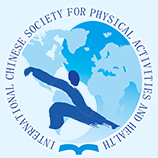Document Type
Abstract
Keywords
swimming, toddlers, motor development, instructions
Publication Date
2-2024
Abstract
Purpose: Infancy and early childhood are important stages of basic motor skills formation. Baby swimming provides a unique opportunity for toddlers aged 2–3 to develop motor skills. The literature documents that baby swimming can promote physical growth in toddlers, but how it affects motor development remains unclear. Therefore, the present study aims to address this gap. Methods: Using interviews, field investigations, assessment tools, this study was conducted in two stages. Stage 1 focused on the instructional information about baby swimming courses, and Stage 2 examined the difference in body indices and motor competencies between two groups of toddlers recruited through convenient sampling. The experiment group included 28 toddlers enrolled in a baby swimming course, while 28 in the control group did not participate in any sports. Motor competencies were assessed using the Peabody Sports Development Scale, including gross motor, fine motor, and overall motor development. T test and Mann Whitney U nonparametric test were used to compare the two sets of data. Results: Stage 1 of the study found: Baby swimming courses for 2-3 years old toddlers focused on safe adaptation in water, mainly developing gross muscle movements and then fine movements. Courses were taught in small classes, with each lasting 35-40 minutes. Stage 2 findings included: (1) The experiment group had no significant different body shape but were higher in height and longer in arm span than the control group. (2) The experiment group differed from the control group in terms of overall motor development and gross motor, but not fine motor. Conclusion: In baby swimming institutions, water safety is the main learning objective for toddlers. The courses had no obvious effect on promoting physical growth development of toddlers aged 2-3. Baby swimming promoted toddlers’ gross muscle movements, especially their body control and coordination. However, it did not have significant positive effects on fine motor development in this age group.
DOI
https://doi.org/10.18122/ijpah.3.1.36.boisestate
Recommended Citation
Gu, Jiayu and Wen, Yuhong
(2024)
"A132: The Impact of Baby Swimming on Motor Development of Toddlers,"
International Journal of Physical Activity and Health: Vol. 3:
Iss.
1, Article 36.
DOI: https://doi.org/10.18122/ijpah.3.1.36.boisestate
Available at:
https://scholarworks.boisestate.edu/ijpah/vol3/iss1/36
Included in
Exercise Science Commons, Health and Physical Education Commons, Public Health Commons, Sports Studies Commons


